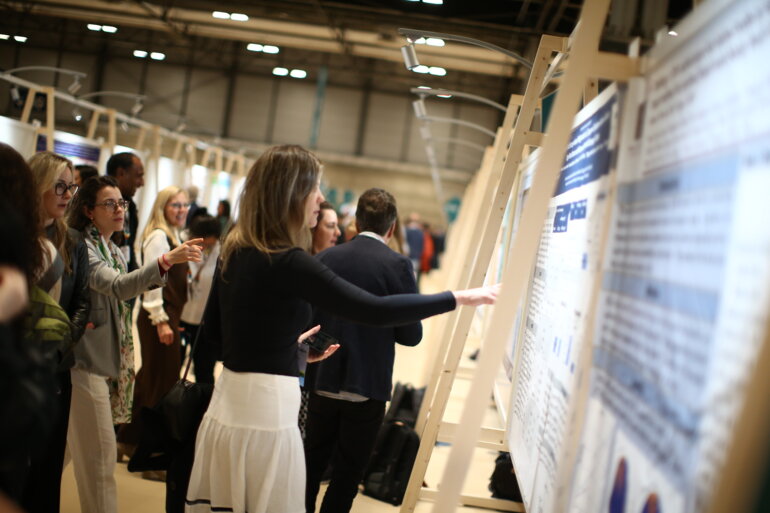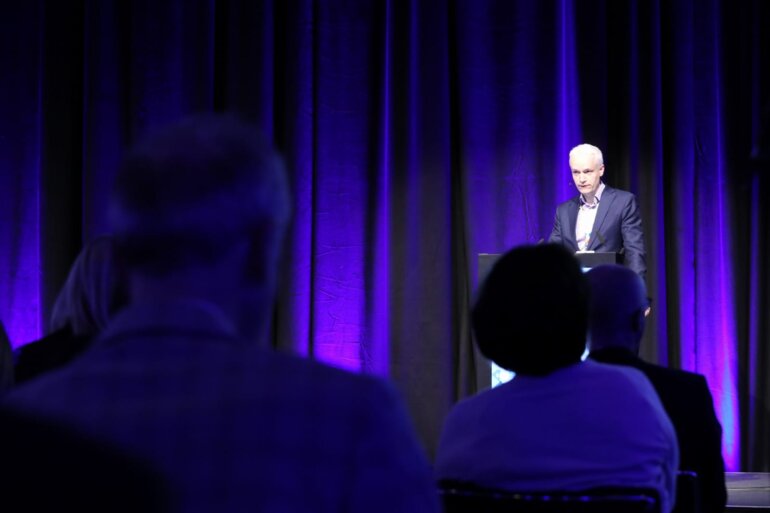A growing body of evidence has identified Notch mutations as a potential target in adenoid cystic carcinoma (ACC), a rare type of salivary gland carcinoma
While genomic research in salivary gland carcinoma is still in its infancy, a growing body of evidence has identified Notch mutations as a potential target in adenoid cystic carcinoma (ACC), a rare type of salivary gland carcinoma. The pan-Notch inhibitor, AL101, is being investigated in a phase II trial. Efficacy and safety data in 12 patients in the first stage of the trial will be presented on Monday 30 September at ESMO Congress 2019 (Poster Display Session 3, 12.00 ‒ 13.00, Poster Area [Hall 4]; Abstract 1148P). "There are currently limited treatment opportunities in this setting,” explains Prof. Paolo Bossi from the University of Brescia, Italy, "and while the applicability of AL101 may be restricted because less than 20% of patients with ACC have Notch mutations, this potential new targeted treatment may represent a concrete option for this group of patients with particularly aggressive disease and poor prognosis.”
Salivary gland carcinomas constitute a heterogeneous group of malignancies that are notoriously difficult to treat using systemic therapies. Response to chemotherapy often occurs only in some histological subtypes or rapidly progressing tumours. "Currently, chemotherapy is the only type of treatment that is widely available for salivary gland carcinomas, but its limited efficacy means that it should only be offered to appropriate patients, such as those with rapidly progressing disease who are able to tolerate treatment,” continues Bossi.
In a second study, to be presented in further detail on Monday, treatment with the anti-VEGFR, anlotinib, was associated with an objective response rate of 19.1% in 16 patients with ACC (Abstract 1147P), which is not dissimilar to the overall—complete plus partial—response rate in a phase II study of the TKI, lenvatinib."I believe that future treatments for salivary gland carcinomas, including the combination of agents with synergistic modes of action, will emerge from combined preclinical and clinical research efforts,” says Bossi. "Major advances in the field may come from a better understanding of the molecular mechanisms behind each subtype of salivary gland carcinoma and the influence of regulatory pathways on its natural history, which are just two areas of key research interest.”
A further step in this direction is emerging from investigations of prognostic and predictive markers of response to androgen receptor blockade therapy that have revealed that Eastern Cooperative Oncology Group (ECOG) performance status and age may not be predictive of survival (Abstract 1166P). In contrast and as previously suspected, female sex is predictive of worse outcome in patients receiving this type of therapy. "It is worthwhile knowing that androgen blockade could be a valid treatment option for salivary gland carcinomas in elderly patients and those with suboptimal performance status,” says Bossi. Surprisingly, results have revealed that the level of HER2 expression in patients with advanced salivary gland carcinomas does not influence survival with trastuzumab plus docetaxel therapy (Abstract 1168P). Instead, it appears that downstream pathways, particularly PTEN and mTOR, are predictive markers of survival with this treatment combination.
PTEN also shows predictive value for survival with androgen blockade therapy in patients with advanced ACC (Abstract 1166P).Salivary gland carcinoma organoid cultures—which will be described for the first time in Monday’s Poster Display Session 3, Poster Area (Hall 4) (Abstract 1169P)—may be a useful new tool for expanding our understanding of this disease, including in-vitro testing of potential new treatments. Organoid cultures provide a three-dimensional, near-physiological model of human cancers that retain many of the functions of the original tumours from which they are derived. They offer more detailed information than is available from drug screening in regular cell-line cultures and can even be used to study a specific cancer patient’s response to treatment. Organoid technology can help to translate basic cancer research into clinical practice.
ESMO Congress 2019 abstracts:
- 1148P - ACCURACY a phase (P) II trial of AL101, a pan-Notch inhibitor, in recurrent/metastatic (R/M) adenoid cystic carcinoma (ACC) patients (pts) with Notch activating mutations (Notch act mut): Preliminary safety and efficacy data
- 1147P - Efficacy and safety of anlotinib for patients with recurrent and/or metastatic salivary gland carcinomas
- 1166P - Combined androgen blockade in patients with advanced androgen receptor-positive salivary gland carcinoma: Exploratory biomarker analyses
- 1169P - Development and characterization of salivary gland cancer organoid cultures





